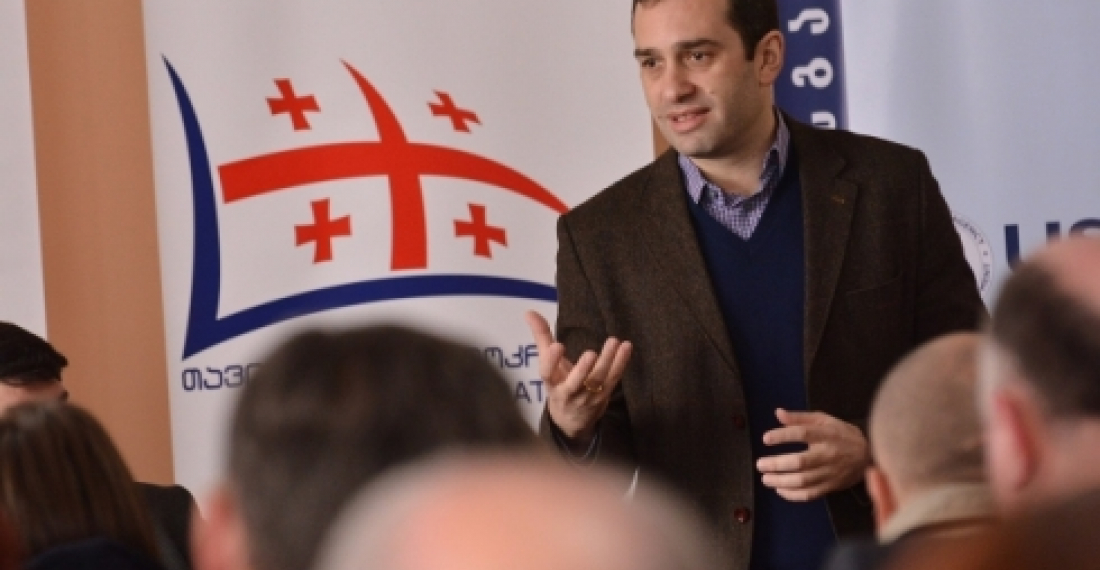Georgia's opposition Free Democrats have announced their party list ahead of legislative elections on October 8. The party was part of the Georgian Dream coalition after the 2012 elections, but left to join the opposition in November 2014. The economically liberal, pro-European party was founded in 2009 and is led by Irakli Anasania.
The full list, in order:
· Irakli Alasania
· Victor Dolidze
· Nino Goguadze
· Zurab Abashidze
· Irakli Chikovani
· Shalva Shavgulidze
· Tamar Kekenadze
· Alexi Petriashvili
· Maia Panjikidze
· Giorgi Tsagareishvili,
· Tamar Amashukeli
· Davit Onoprishvili
· Tamaz Shioshvili
· Vakhtang Mchedlidze
· Tinatin Revazishvili
· Teimuraz Salukvadze
· Tamar Koberidze
· Baniamin Kasimov
· Nikoloz (Koka) Pruidze
· Mikheil Avakian
SOURCE: civil.ge
PHOTO: Irakli Alasania and the Free Democrats logo







